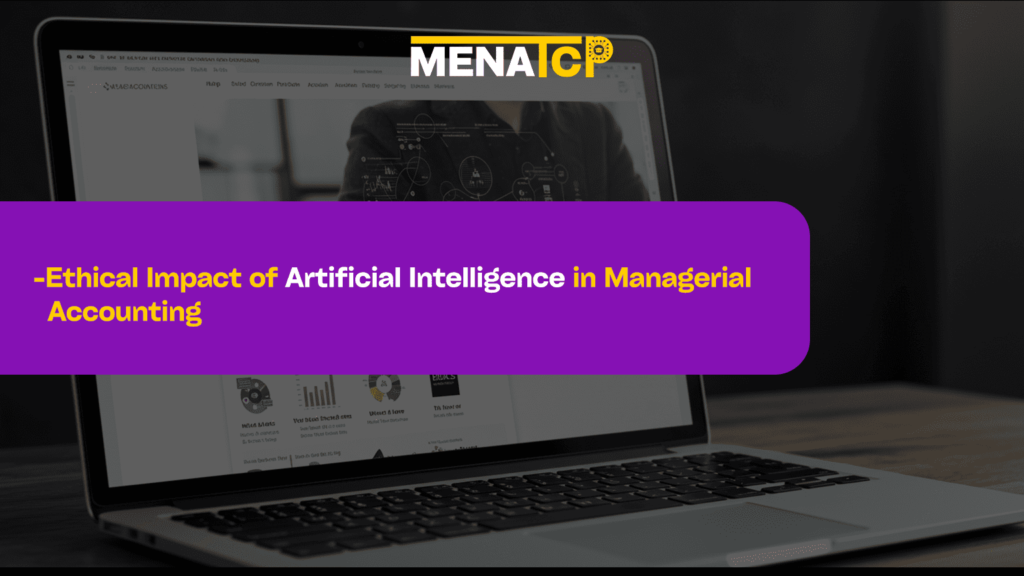Artificial Intelligence (AI) has a huge effect on the evolution of modern finance and the accounting professions. Thanks to advances in data collection technologies and the large reduction in storage cost, companies now collect and store huge amounts and varieties of data. The increasing availability of data has called for the need for technologies such as AI that can perform efficient and effective analyses. AI uses machines to interpret and learn from data to accomplish specific tasks. The adoption of AI provides a unique opportunity for management accountants, who are already proficient at analyzing and obtaining insights from data. And with the use of AI, management accountants can use analyses to improve corporate performance to establish effective management control systems and to improve the quality of managerial accounting.
You’re probably familiar with traditional financial accounting or even the use of artificial intelligence in accounting. A different form of accounting is managerial accounting
Managerial accounting differs from financial accounting because the purpose of managerial accounting is to assist users internal to the company in making well-informed business decisions.
The primary roles of modern managerial accounting include preparing financial statements, budgeting for internal costs, implementing control for corporate performance, and facilitating strategic cost management to achieve long-term goals.
As the use of artificial intelligence in accounting is different from the use of artificial intelligence in managerial accounting the ethical risks also vary here are some examples of AI ethical impact in managerial accounting:
1- Data Security, Privacy, and Misuse:
AI applications in managerial accounting involve vast amounts of financial and operational data, often revealing critical company metrics and trade secrets. Businesses face significant concerns about data security, privacy, and potential misuse. These include safeguarding business data during external data acquisition and ensuring secure integration of internal and external data sources.
Additionally, AI systems often rely on external data sources like industry reports and tax records. These third-party data integrations raise concerns about reliability, copyright compliance, and potential bias. Legal risks and challenges in accurately processing such data also emerge as critical issues, as noted by an accounting director of an energy company.
To address these challenges, businesses must implement controls, to ensure secure data storage and transmission, and evaluate the reliability and legality of external data sources.
2- Accountability :
An ethical question in AI for managerial accounting is determining accountability for AI results. AI developers and managers play critical roles in this accountability. While AI developers often select novel algorithms to attract users, overconfidence and limited understanding can lead to misleading outcomes. An IT director at an AI company emphasized the importance of using mature technologies that fit the project needs and the necessity of technical training to mitigate risks.
Managers tasked with acquiring and implementing AI also hold significant responsibility. Their beliefs, knowledge, and attitudes toward AI heavily influence its successful adoption.
Managerial accountants are equally vital throughout the development and implementation stages. Effective communication and accurate information gathering during system investigation significantly influence AI’s functionality and ability to meet expectations.
That’s why accountability for AI outcomes is shared among developers, managers, and accountants. Success hinges on thoughtful technology selection, strong leadership support, clear communication, and alignment with organizational goals.
3- Bias in AI Systems :
AI systems in managerial accounting often use rule-based algorithms derived from expert knowledge. However, these rules can reflect the limitations, personal emotions, and biases of experts, potentially embedding these biases into AI systems. Such biases may influence managerial accountants, raising concerns among professionals.
To mitigate biases, companies are adopting evaluation mechanisms to ensure the fairness, justice, and equity of AI algorithms. Some organizations use a hybrid approach, integrating AI analyses with inputs from human accountants and professionals.They improved the system by incorporating management team insights, leading to more balanced and effective decision-making tools.
Managerial accountants play a critical role in reducing the influence of bias by maintaining professional judgment and critically evaluating AI-generated results. Regular professional training and lifelong education are essential to enhance their ability to interpret and adjust AI outputs effectively.
That’s why addressing biases in AI for managerial accounting requires a combination of advanced algorithm evaluation, integration of human insights, and ongoing professional development. These measures can reduce the impact of expert bias, enabling AI to provide more reliable support for managerial decisions.
